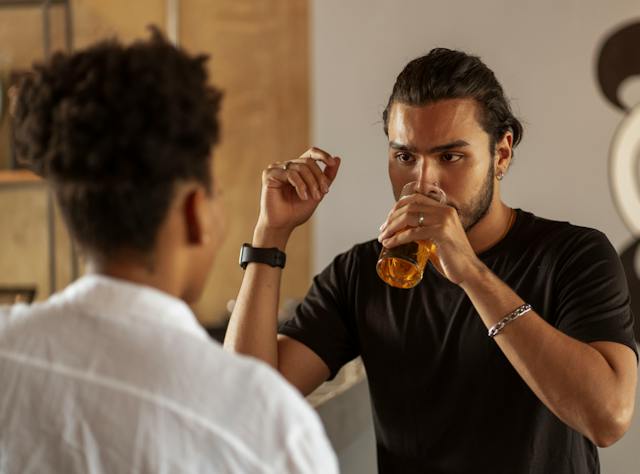A groundbreaking smartphone application is in development to identify users’ impaired driving potential by analyzing their speech. Scientists propose utilizing built-in smartphone sensors to assess intoxication levels based on vocal change.
Researchers accurately determine intoxication through speech
In the study, participants drank alcohol adjusted for their weight and attempted tongue twisters before and every hour for up to seven hours. They read the tongue twisters aloud while a smartphone recorded their speech. Researchers also measured the participants’ breath alcohol concentration at the start and every half hour throughout the experiment.
Researchers employed digital software to isolate and analyze speakers’ voices by dividing them into one-second segments and examining attributes like frequency and pitch. The study, a collaboration between Stanford Medicine and the University of Toronto, involved 18 adult participants aged 21 and older. The findings revealed a 98-percent accuracy rate in predicting intoxication by comparing voice pattern changes over time with breathalyzer readings.
The study’s lead researcher, Professor Brian Suffoletto of Stanford Medicine, expressed surprise at the model’s accuracy. While not pioneering the changes in speech characteristics during alcohol intoxication, the team’s use of cutting-edge innovations in signal processing, machine learning and acoustic analysis, led to superior accuracy.
Smartphones recommended for application because of accessibly
The goal is to create “just-in-time interventions” to prevent injuries and fatalities from accidents. Researchers advocate for a straightforward and widely accessible intervention tool, suggesting smartphones and smart speakers as excellent candidates due to their pervasive presence.
Dr. Suffoletto suggests that frequent check-ins to monitor alcohol consumption could be counterproductive, potentially leading to annoyance or even prompting more drinking. He proposes the idea of a tool that can passively gather data from individuals as they go about their daily activities, monitoring for changes that could signal a drinking episode and indicate when help is needed.
The researchers emphasize the importance of conducting more comprehensive studies involving participants from diverse ethnic backgrounds to validate the use of voice patterns as an indicator of intoxication. They propose collaborating with companies that gather speech data through smart devices and advocate for the establishment of repositories for digital biomarkers.


